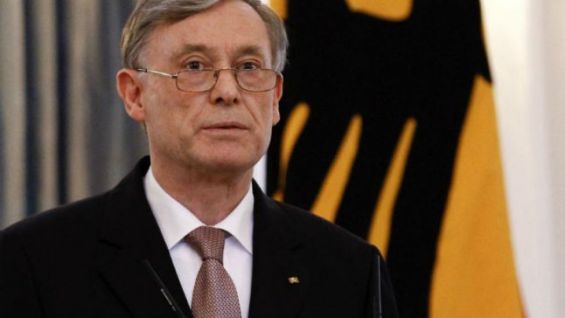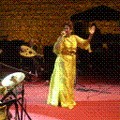Antonio Guterres, the UN Secretary-General, welcomed Köhler’s tour of the region, stressing «the importance of this visit that would restart the political process with a new spirit and a new dynamic, in accordance with resolution 2351 (29th April 2017) initiated by the Security Council». No date has been put forward for the visit of the German diplomat, who is required to present a briefing on the case before the Fifteen of October or November. What are the reasons and challenges of this visit ? Abdelfettah El Fatihi, a political expert and analyst on the matters of the Sahara and Africa, will answer these question giving his own analysis.
First of all, what are the reasons behind the next trip of the new UN Secretary General envoy to the region according to you ?
Horst Köhler’s visit to the area is just a natural step after the failure of Christopher Ross’s mission. A failure brought to the surface in the conclusions he presented to the Security Council where he said that it was impossible for him to find points of convergence between the two parts to maintain direct talks and allow a political settlement. He also found that the divergence of positions is persistent.
On the other hand, after the 21-53 report released last April, new things have emerged in the region, including the Guerguerate crisis, the return of the Minurso after being expelled by the Kingdom and the new framework of the mission. So, several factors that should be known by the new personal envoy have made it to the surface.
Do you think this meeting is of a great importance ?
This visit is purely introductory to Köhler who needs to know about the situation on-site. He will also determine the relationship between him and the Special Representatives for the Sahara (Kim Bolduc, etc.) and to bring up details about the Minurso’s work.
This means that the meeting is also linked to the agenda of the new Secretary General special envoy, who should present a report on the 15th of October about the situation in the Sahara.
The situation today is that displacement is part of the process of getting to know the ins and outs of the matter, in order to find common points of convergence that would start direct talks. This is supposed to happen even if things are difficult to handle at the moment, but Horst Köhler will have to prepare a new roadmap for a first report to be delivered before Antonio Guterres. What is important now is that Köhler will focus on finding a political settlement, that is, he will try to see what will bring the two parts together to negotiate.
Do you think that the situation today will help organize direct talks between Morocco and the Polisario ?
Generally and regionally, it can be said that there has not been a remarkable change on site that requires accelerating the process of reaching a political solution. Tension is there, especially regionally, but it is not likely to change much of the nature of the central issue.
The Kingdom has also been flexible in its relation with the United Nations. This commitment is confirmed through the latest report on the Sahara. Morocco has also been in favor of direct talks. The problem lies with the Polisario Front, which always believes in solutions that are inapplicable in the current context.
In this context, what do you think of the solutions presented by Morocco to several problems related to this regional dispute ?
Several thorny issues likely to present a problem or a crisis and to involve even more international opinion have been well managed by the Kingdom. For the case of Guergarate, Morocco has reffered to the UN which is now held responsible for the area. As far as the territorial waters of the Sahara are concerned, the problem has been legally resolved and ships now move freely. For terrorism, Morocco's return to the African Union allows the African Union to become more involved in issues related not only to terrorism but also to migration. So, Morocco presented solutions for several issues that worried the international community and which were caused by the Sahara conflict.
In fact, if you say that the solution is not urgent, what is the concern of the international community today ?
What is worrying today is the Polisario Front and, above all, its inability to come up with a solution to the Saharawi problem in Tindouf. The international community wants to intervene, notably on the humanitarian level, through the refugee issue and the programs aimed at this section, but it is met with obstacles on the part of the Front which does not want to solve this problem and refuses to count refugees.
Therefore, Morocco can no longer be blamed for becoming a recognized actor, particularly in Africa, through economic initiatives and projects. The Polisario presents only a political problem and has nothing to offer to Africa.





 chargement...
chargement...












